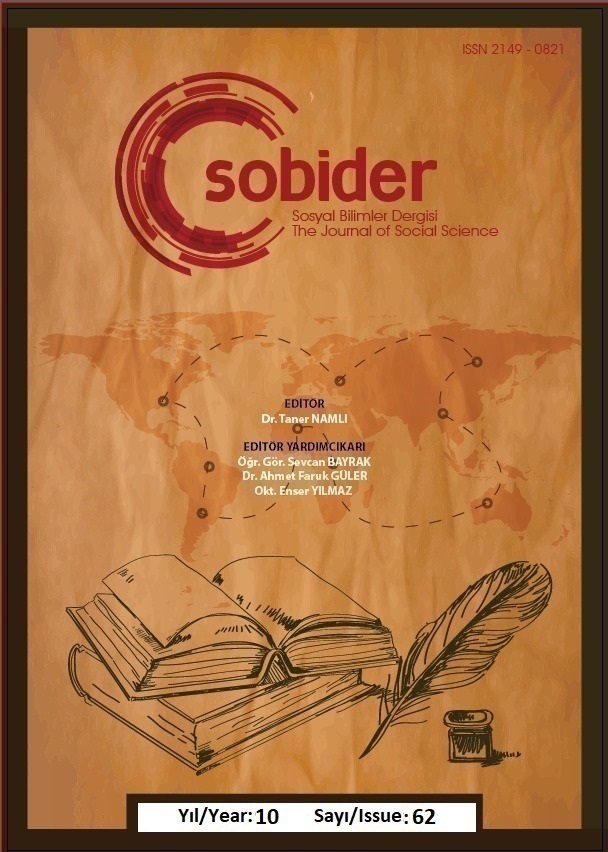Author :
Abstract
Yer adları değişiklikleri, 20. yüzyılda diğer pek çok ulus devlet gibi Türkiye’nin de gündemine girmiştir. Ulus devletin, kurulmakta olan ulusal birliğe uygun bir tarih kurgulaması gerekir. Ulusal tarih, hatırlanması gereken önemli olaylar kadar, unutulan öğelerin yokluğuyla kurulur. Bu tarih anlayışının ülke coğrafyasına yöneltilmesiyle, ülkenin ulusa uygun sembolik isimlerle donatılması gereği ortaya çıkmıştır. 20. yüzyıl boyunca özellikle önemli siyasal dönüşümlerin ardından yerleşim yerlerinin adları değiştirilmiştir. Türkiye’de uluslaşma süreci boyunca yer adlarının değiştirilmesi sistematik bir politika olarak izlenmiştir. Bu politika hatırlanması istenmeyen geçmişe, siyasal öznelere ve kültürlere yönelik silme ve unutturma yoluna gitmiştir. Yer adlarının değiştirilmesinin diğer boyutu ise devleti, kurucu tarihi ve egemenliği yansıtacak adların yerleşim yerlerine verilmesiyle oluşmuştur. Türkiye örmeği, dünyadaki benzer deneyimlerden verilen yeni yer adlarının önemli bir kısmının siyasal ideolojiyle ya da kurucu tarihle ilgisiz olmasıyla ayrılır. Merkezden belirlenen bu nötr içerikli isimler, devletin kendisini siyaset dışı, doğal bir öğe olarak kurgulamasıyla ilişkilidir.
Keywords
Abstract
Like many other nation-states in the 20th century, place name changes have been on the agenda of Turkey. The nation-state needs to construct a history that is appropriate to the national unity that is being established. National history is constructed by the absence of forgotten elements as well as important events that need to be remembered. As this understanding of history was directed towards the geography of the country, it became necessary to endow the country with symbolic names appropriate to the nation. Throughout the 20th century, especially after important political transformations, the names of settlements were changed. Throughout the process of nation-building in Turkey, changing place names has been followed as a systematic policy. This policy has sought to erase and forget histories, political subjects and, cultures that are not wanted to be remembered. The other dimension of the change of place names is the renaming of settlements that reflect the state, its founding history and, sovereignty. The Turkish case differs from similar experiences around the world in that a significant portion of the new place names are unrelated to political ideology or founding history. These centrally determined neutral names are related to the state's construction of itself as a non-political, natural element.





